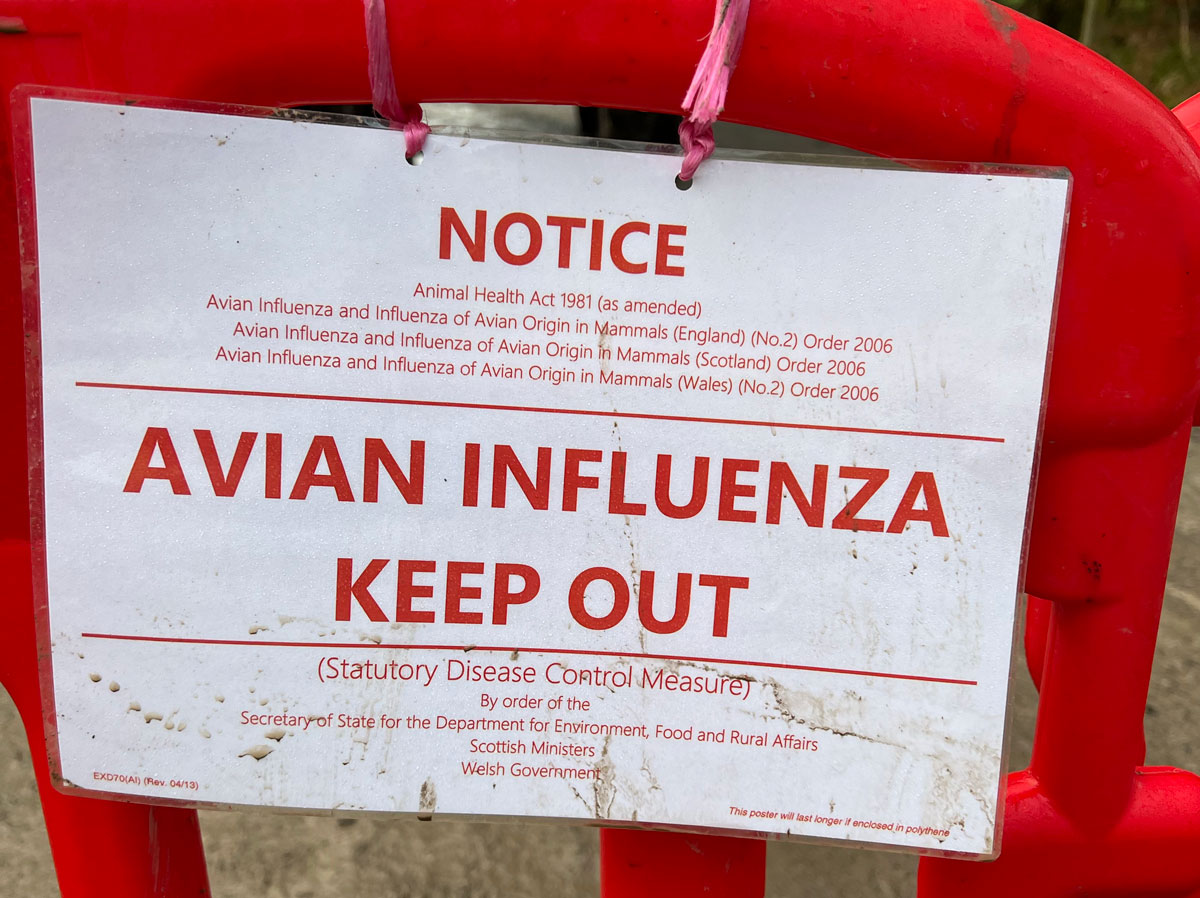
Bird flu has been confirmed in captive birds in Norfolk just days after the government declared an avian influenza prevention zone (AIPZ) across parts of England.
Highly pathogenic avian influenza was detected at a premises near Cranworth on Saturday evening (14 December) following a string of cases in the county.
The affected birds on the infected premises will be humanely culled and a 3km captive bird controlled zone has been put in place, Defra said.
It comes after the government declared an AIPZ across East Yorkshire, Lincolnshire, Norfolk and Suffolk following an uptick in disease cases.
It means it is now a legal requirement for all bird keepers within the zone to follow strict biosecurity measures to help protect their flocks, whatever type or size.
The UK’s chief veterinary officer said on Friday (13 December) that the AIPZ would help 'mitigate the risk of further outbreaks of disease occurring'.
It follows a number of detections of highly-pathogenic avian influenza in poultry and wild and captive birds across these counties.
The AIPZ means farmers and bird keepers must follow strict biosecurity measures to help protect flocks and mitigate the risk of further outbreaks.
It does not include a requirement to house birds, unless farmers or keepers are also in a 3km protection zone.
However, Defra said this was being kept under constant review, adding that further disease control measures would be based on the latest scientific evidence.
The UK Health Security Agency also continues to advise that the risk to public health from the virus is very low.
Christine Middlemiss, UK chief veterinary officer said: "All bird keepers in these areas must take action now to both prevent disease getting in to flocks and it spreading any further.
“Bird keepers must exercise robust biosecurity and remain alert for any signs of disease and report suspected disease immediately to the Animal and Plant Health Agency.”
What does the AIPZ mean?
The zone means farmers and bird keepers across East Yorkshire, Lincolnshire, Norfolk and Suffolk must:
• Cleanse and disinfect clothing, footwear, equipment and vehicles before and after contact with poultry and captive birds– if practical, use disposable protective clothing
• Reduce the movement of people, vehicles or equipment to and from areas where poultry and captive birds are kept, to minimise contamination from manure, slurry and other products
• Carry out effective vermin control in any areas where poultry and captive birds are kept
• Thoroughly cleanse and disinfect housing on a continuous basis
• Keep fresh disinfectant at the right concentration at all farm and poultry housing entry and exit points
• Minimise direct and indirect contact between poultry and captive birds and wild birds, including making sure all feed and water is not accessible to wild birds
• Prevent access by poultry to ponds and watercourses and ensure that birds are kept in fenced or enclosed areas
